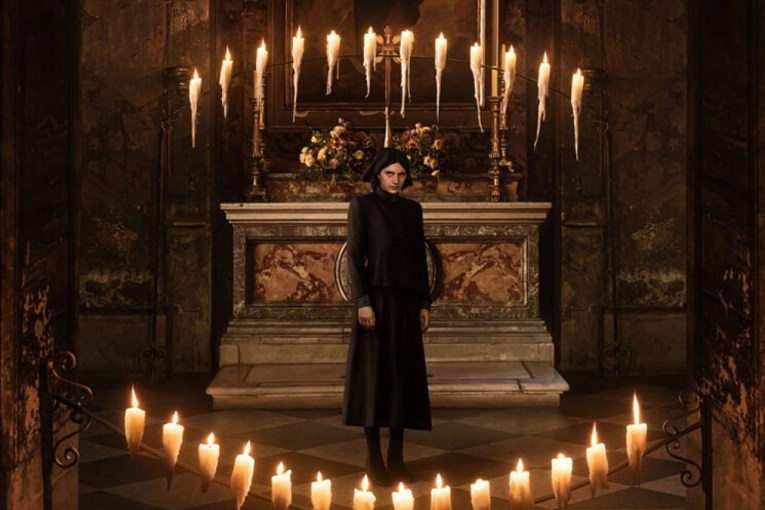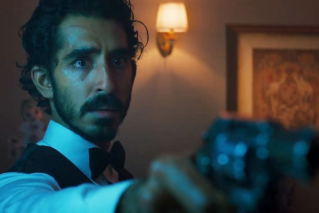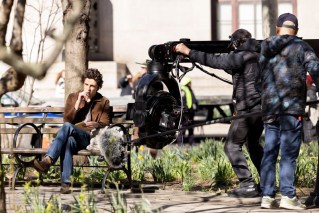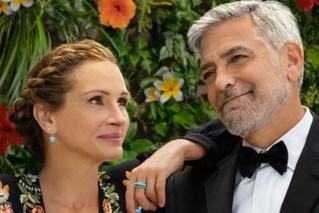The devastating scene that had everyone on the set of The Nightingale in tears

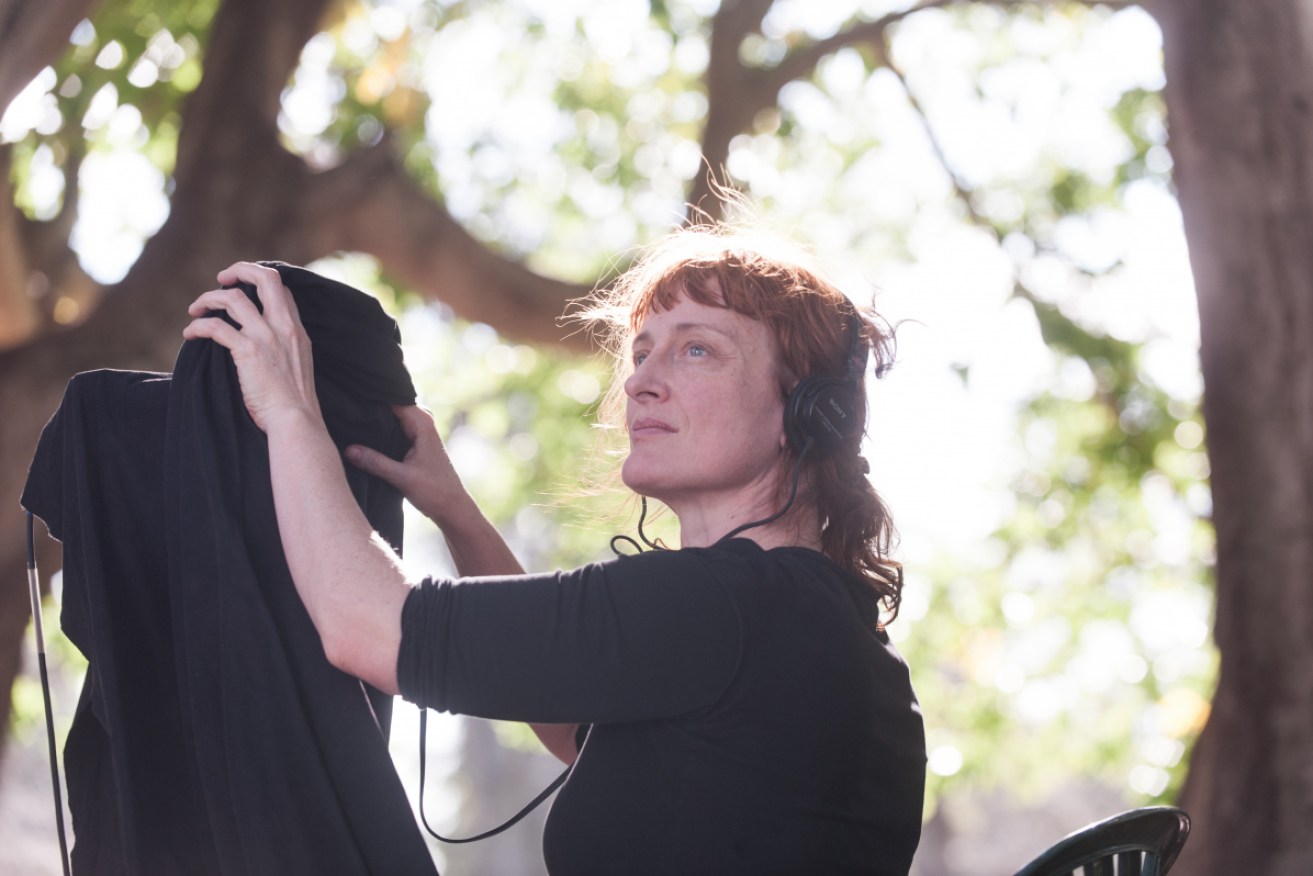
Jennifer Kent's film has sparked walk-outs and cutting criticism. Photo: Matt Nettheim
The sickening noise at the climax of The Nightingale’s devastating scene of bloody murder and sexual violence will haunt my ears forever.
Set in a young convict couple’s grimy hut in 1825 Tasmania, then called Van Diemen’s Land, sees The Fall’s Irish-Italian actor Aisling Franciosi (Clare) thrown into an emotional and physical journey.
The young settler is viciously attacked by British officer Lieutenant Hawkins (Sam Claflin) and his odious henchman Ruse (Once Upon a Time in Hollywood’s Damon Herriman).
The horror that unfolds is terrible to behold.
Sparking an emotionally complex vengeance quest through the island’s unforgiving heart, guided by a scene-stealing Baykali Ganambarr as Aboriginal tracker Billy, Clare’s hut scene is the heavy anchor that holds this Australian masterpiece steady.

Jennifer Kent with actor Baykali Ganambarr. Photo: Matt Nettheim
“That particular scene was the hardest, because it was the longest to film and the most brutal,” writer/director Jennifer Kent (The Babadook) tells The New Daily.
Taking two gruelling days to film, it had everyone on set crying, including Australian co-star Herriman.
“We worked with a stunt co-ordinator and mapped it out almost like a dance,” she reveals.
“Everyone knew their moves, and then it was just a matter of releasing into that emotion.”
At one stage, the first assistant cameraman had to stop filming because he couldn’t see through the camera for his tears.
“It was very moving to see a lot of these men, who are veterans of film sets, affected,” Kent says.
“And I think that was a good thing, because it shows just how horrible violence is.”
Far from an unrelenting Hitchcock-like task-master, caring for her cast and crew was her first priority.
“It’s very important to me to foster a lot of love and care on set, so the energy was remarkable. Everyone on set is precious, but actors go through the most emotionally, so I needed to be there for them.”
Psychologist Dr Elaine Barrett accompanied Franciosi to a domestic violence centre and was on set through all the most difficult scenes, working with the actors to understand the devastating effects.

Jennifer Kent with Aisling Franciosi. Photo: Matt Nettheim
No cartoonish revenge fantasy, The Nightingale’s murders have weight.
“Revenge doesn’t offer the catharsis or satisfaction that people hope for, and that has brought some people to be really angry and frustrated at the film,” Kent says.
“That’s good, because it questions their desire for blood and thirst for revenge.”
Kent insists there’s no flinching from the truth of violence against women and Indigenous Australians.
She sought permission to tell this shared story from Tasmanian Aboriginal elder Jim Everett, who was a rock throughout production, and brought on board language consultant Theresa Sainty.
“It’s vital to the healing of the country, and for us to move forward in any evolutionary way, to really examine what happened, but also the far-reaching effects that this history has on our current-day society,” Kent says.
“I hear this thing, ‘aww, it’s 200-odd years ago, get over it’, which shows to me a complete lack of understanding of how colonialism has far-reaching effects into the present for Aboriginal people, and for all of us.”
Debuting at the 2018 Venice Film Festival, The Nightingale took home the Special Jury Prize and the Marcello Mastroianni Award for Best Young Actor for Ganambarr.
A year on, she’s more sanguine.
“I read this beautiful Anaïs Nin quote this morning that said, ‘We don’t see things as they are; we see them as we are’. I feel that very much with this film, that someone can see what’s not there.
“To tell the truth in storytelling now, and to make independent films with a unique vision, is very tough. I’m really proud of this film and will protect it regardless of what’s thrown at it.”
The Nightingale is in cinemas nationally from August 29
